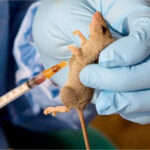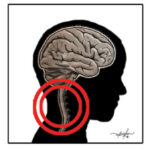Dr Ademola Lawal, a field epidemiologist has advised that shanty dwellers and Internally Displaced Persons’ (IDP) camps should be vaccinated against Cerebral Spinal Meningitis (CSM) to prevent its spread.
Lawal, who gave the advice in an interview with the News Agency of Nigeria (NAN) on Monday in Abuja, also said Nigerians should be wary of dwelling in crowded areas to avoid contacting the disease.
He said that the disease, which had an incubation period of between two days and 10 days, had the ability to spread through the air and cause death if not checked.
“ CSM is an inflammatory disease of the covering of the brain. It is caused by two main organisms, Nessira Menigiltidis; and it is highly contagious.
“Many people can contact it, but only a few people come down with the symptom, and they can die.
“People who dwell in shanties and crowded places like the IDP camps are most vulnerable to contacting it; government should do all it can to vaccinate such people against CSM,’’ he said.
According to the epidemiologist, the weather also plays a role in nurturing the virus that carries the disease.
Lawal said that though deadly, meningitis was treatable and advised that people who showed symptoms of the disease should be taken for immediate medical attention.
“Meningitis is dangerous but it is treatable, when we see people with symptoms like fever, cold hands and feet, vomiting, drowsiness, severe headache and stiff neck, they should be taken for medical attention,’’ he advised.
He said that the meningitis vaccination programme that was hitherto funded for meningitis type `A’ had ended, adding that the country was now grappling with type C meningitis.
“It is important to know the exact type of meningitis in order to give the appropriate treatment.
“In the past there was an international programme to vaccinate people in the meningial belt, which includes Nigeria, to ensure that everybody was vaccinated against the type A.
“People now have immunity against type A, but type C is prevalent now and there is no stockpile of vaccines for it. We do reactive vaccination,’’ Lawal explained. (NAN)

 Join Daily Trust WhatsApp Community For Quick Access To News and Happenings Around You.
Join Daily Trust WhatsApp Community For Quick Access To News and Happenings Around You.


